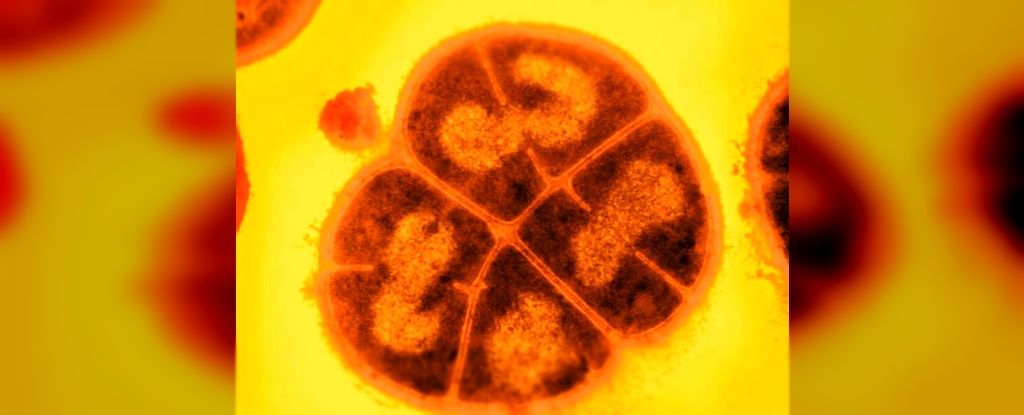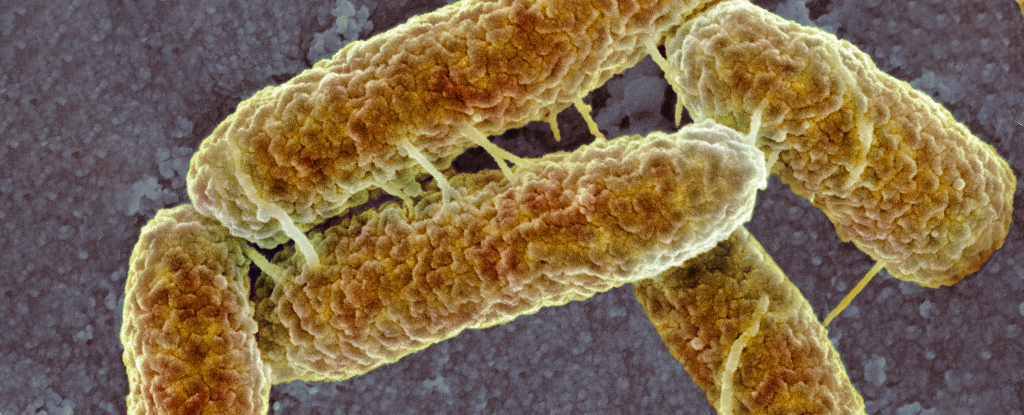
The fact that this bacteria so closely resembles that transition point, from two single cells with different genetics to one inseparable cluster, is fascinating: embryo comparisons have provided many clues about our evolutionary history.

Capable of handling extreme cold, acid, and dehydration, the microbe Deinococcus radiodurans handles doses of radiation that would kill a human tens of thousands of times over.

Bacteria can develop a heightened new sensitivity to acid levels when exposed to different environmental extremes in the laboratory, a new study shows.

A recent study shows promise for a new antibiotic that effectively fights several bacteria while sparing the helpful bacteria that occur naturally in the gut.

In 'extreme environmental conditions' scientists have discovered 968 species featuring a hugely diverse range of microbes. Excitingly, 82 % of the genomes were novel species.

International scientists have discovered a new class of compounds that uniquely combine direct antibiotic killing of pan drug-resistant bacterial pathogens with a simultaneous rapid immune response.

Trillions upon trillions of microbes have remained locked away in the Arctic’s permafrost in a “deep sleep” for thousands of years. But the Arctic is warming twice as fast as the rest of the world in the wake of climate change.

Engineering a version of photosynthesis that might be useful for fuel production is challenging. Now, german researchers have rearranged some photosynthetic proteins to make bacteria emit hydrogen when exposed to light.

Acetobacterium woodii is a new bacteria that is able to live in both hydrogen rich and hydrogen absent environments. This allow it to live in a variety of extreme environments, like the ocean floor or maybe another planet.

Idea of microbes originating from space. Microbes can survive frozen, deep within the permafrost for millions and even billions of years. They might be perfectly adapted for a life on some frozen object, traveling through space.

MIT scientists have revealed that their AI discovered an antibiotic compound, halicin, that can not only kill many forms of resistant bacteria but do so in a novel way.

US researchers have found a new species of soil bacteria that is particularly adept at breaking down organic matter, including cancer-causing chemicals that are released when coal, gas, oil and refuse are burnt.

Cement production is one of the world’s leading contributors of CO2 emissions. Now, US researchers have combined sand, a hydrogel, and bacteria into a living material that has similar strength to cement-based mortar.

The discovery of Metallosphaera sedula - the bacteria that eats meteorites not only invites speculation on how terrestrial life could survive off world, it offers insight into how early biology could have received key nutrients through space rocks.

Latest studies showed that bacteria-infecting viruses called bacteriophages, or simply phages, could kill different strains of the bacterium E. coli by making mutations in a viral protein that bound to host cells.